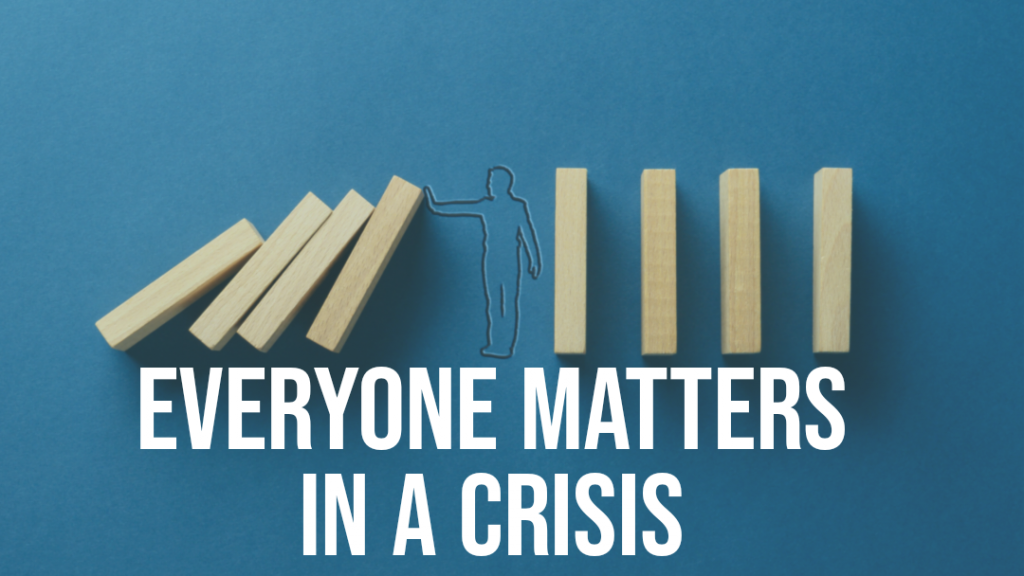Everyone Matters in a Crisis
Crises are Inevitable
To say a crisis looms at any moment is an understatement. Not only is it an understatement, but a crisis usually occurs with little to no warning, at any given time. The fact that such misfortune does not discriminate against any organization, large or small, is troubling.
The Individual Has an Impact
While a crisis may strike at the heart of a corporation or a family, the individual has a much greater impact on the outcomes of a crisis then they’d like to believe. The courage to respond or not will decide the fate of how much worse a crisis becomes. Mass shootings that have occurred over the past decade are prime examples.
The ability to manage fluid situations and make good, sound decisions—decisions that can be justified after the dust clears—is essential. Most do not have the instincts for this but facilitating a culture to encourage these instincts is often the missing ingredient.
Planning is Underrated
With proper planning, no matter how bleak, gains can be realized from a crisis. Your crisis mindset should align with other inevitable situations, such as taxes or eventual death. Planning must occur during times of mental clarity, not in weakness or intense fear. Driven by purpose and intention, out of the strength that comes from knowing that you are prepared to confront crisis head on.
Plan for the best possible response to an organizational crisis, much like you would for a personal one. In the same way, you should seek potential opportunities in those difficult times in balance with the potential dangers. The key to unlocking this fresh perspective on crisis management and communication is to understand what makes crisis a crisis. More to come on this topic.
Contact us to learn more about our approach to crisis management and communications.





